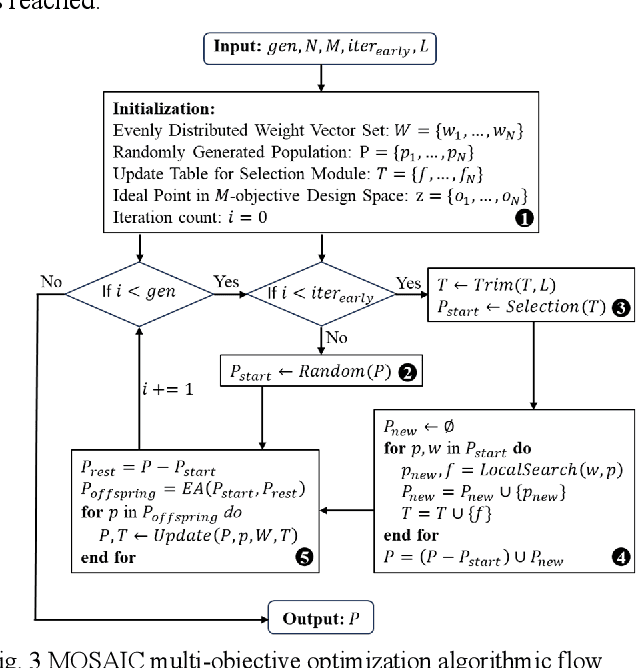MOSAIC: A Multi-Objective Optimization Framework for Sustainable Datacenter Management
Paper and Code
Nov 14, 2023



In recent years, cloud service providers have been building and hosting datacenters across multiple geographical locations to provide robust services. However, the geographical distribution of datacenters introduces growing pressure to both local and global environments, particularly when it comes to water usage and carbon emissions. Unfortunately, efforts to reduce the environmental impact of such datacenters often lead to an increase in the cost of datacenter operations. To co-optimize the energy cost, carbon emissions, and water footprint of datacenter operation from a global perspective, we propose a novel framework for multi-objective sustainable datacenter management (MOSAIC) that integrates adaptive local search with a collaborative decomposition-based evolutionary algorithm to intelligently manage geographical workload distribution and datacenter operations. Our framework sustainably allocates workloads to datacenters while taking into account multiple geography- and time-based factors including renewable energy sources, variable energy costs, power usage efficiency, carbon factors, and water intensity in energy. Our experimental results show that, compared to the best-known prior work frameworks, MOSAIC can achieve 27.45x speedup and 1.53x improvement in Pareto Hypervolume while reducing the carbon footprint by up to 1.33x, water footprint by up to 3.09x, and energy costs by up to 1.40x. In the simultaneous three-objective co-optimization scenario, MOSAIC achieves a cumulative improvement across all objectives (carbon, water, cost) of up to 4.61x compared to the state-of-the-arts.
 Add to Chrome
Add to Chrome Add to Firefox
Add to Firefox Add to Edge
Add to Edge